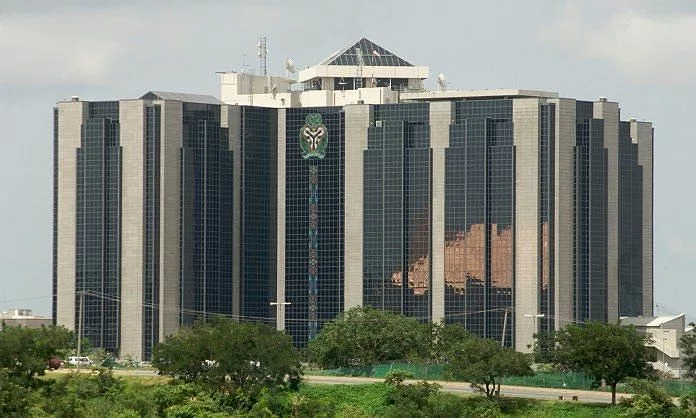Contrary to the expectations of market watchers and analysts that the Monetary Policy Committee of the Central Bank of Nigeria would keep benchmark interest rates unchanged at its September meetings, the committee had surprised the market with a 50 basis points hike in rates.
At the end of the meeting, 11 members who attended had unanimously voted to further tighten policy and thus raised the monetary policy rate (MPR) by 50 basis points to 27.25 per cent from 26.75 per cent.
They also voted to raise the Cash Reserve Ratio (CRR) of Deposit Money Banks by 500 basis points to 50.00 per cent from 45.00 per cent and Merchant Banks by 200 basis points to 16 per cent from 14 per cent, whilst retaining the asymmetric corridor around the MPR at +500/-100 basis points and the Liquidity Ratio at 30.00 per cent.
Almost all analysts sampled had expected a hold decision considering the two month consecutive decline in inflation rate as well as the global trend amongst the major central banks to start cutting rates, following a drop in global inflation, with the most contrarian analysts expecting a 25 basis points increase as the worst-case scenario.
The CBN governor, Olayemi Cardoso speaking at the end of the meeting said the committee noted that even though headline inflation trended downwards due to a moderation in food inflation, core inflation has remained elevated, driven primarily by rising energy prices.
According to the National Bureau of Statistics, headline inflation moderated to 32.15 per cent in August 2024 from 33.40 per cent in July, driven by a decline in food inflation, while the core component inched up. Food inflation eased to 37.52 per cent in August 2024, compared with 39.53 per cent in July, while core inflation rose marginally to 27.58 per cent in August 2024, compared with 27.47 per cent in July.
Month-on-month, headline inflation fell to 2.22 per cent in August 2024 from 2.28 per cent in the preceding month while food inflation eased to 2.37 per cent in August 2024, compared with 2.47 per cent in July. Core inflation, however, rose marginally to 2.27 per cent in August 2024, compared with 2.16 per cent in July.
Cardoso noted that the uptrend in core inflation poses severe concerns to the MPC members, “as it clearly indicates the persistence of inflationary pressures. Members thus, reiterated the need to work in close collaboration with the fiscal authority to address the current upward pressure on energy prices.
“The MPC noted the continued growth in money supply, recognising the need to curtail excess liquidity in the system as well as address foreign exchange demand pressures. Members were also concerned about the growing level of fiscal deficit but acknowledged the commitment of the fiscal authority not to resort to monetary financing through Ways & Means.
“Furthermore, members observed a strong correlation between FAAC releases and liquidity levels in the banking system as well as its impact on the exchange rate. The Committee, therefore, agreed to increase monitoring of future releases with a view to addressing its effects on price developments.”
Analysts at Financial Derivatives Company Limited, whilst noting that the CBN showed that it had guts and was willing to demonstrate its policy and instrument autonomy, said the CBN is finding out that the markets hate surprises and are willing to punish policymakers by moving in the opposite direction.
Initial reaction to the rates hike was an increase in the market capitalization of the stock exchange by 0.18 per cent on Tuesday and 0.42 per cent on Wednesday, even though there should be an inverse relationship between interest rates and stock prices. More surprising though is that the naira (parallel) is weakening rather than getting stronger.
Typically, when interest rates increase, currency strengthens, but this time the naira has fallen from N1,640 per dollar to N1,700. Most analysts believe that the naira should have strengthened, but instead, the naira has lost 1.7 per cent in 24 hours to N1,700 per dollar. The reason for this is the uncertainty surrounding the next Central Bank foreign exchange auction.
The move is also seen as counter productive by the real sector who are already facing high interest rates as stakeholders said the move is not only troubling but would further hamper the already harsh financing condition for companies.
Commenting, the chief executive of the Center for Promotion of Private Enterprise (CPPE), Dr Muda Yusuf noted that the policy choice of the apex bank is at variance with the mood of most economic players and the desire to promote economic recovery and growth.
“It is quite troubling that at a time when manufacturers, entrepreneurs and other investors in the economy are craving for a breath of fresh air, the CBN chose to tighten the noose on them by resorting to a further tightening of monetary policy.
What manufacturers and other investors need at this time is some oxygen and stimulus, not policy measures that would worsen an already suffocating situation. MPR at 27.25 per cent; CRR at 50 per cent and asymmetric corridor at +500 and -100 are very difficult monetary condition to bear for most businesses, given the prevailing macroeconomic and structural conditions.





